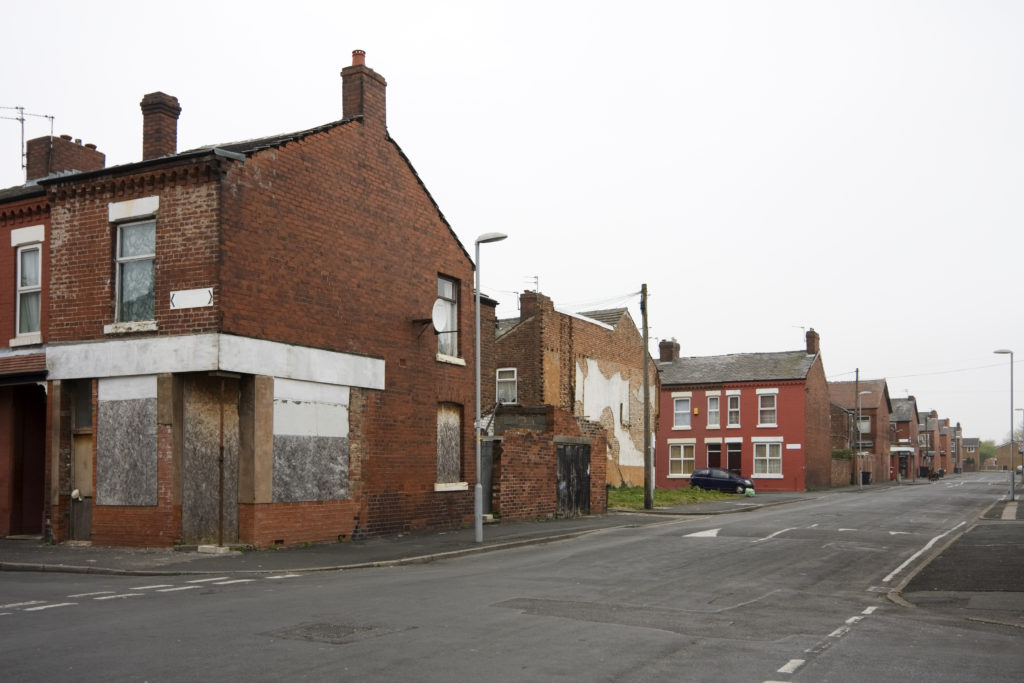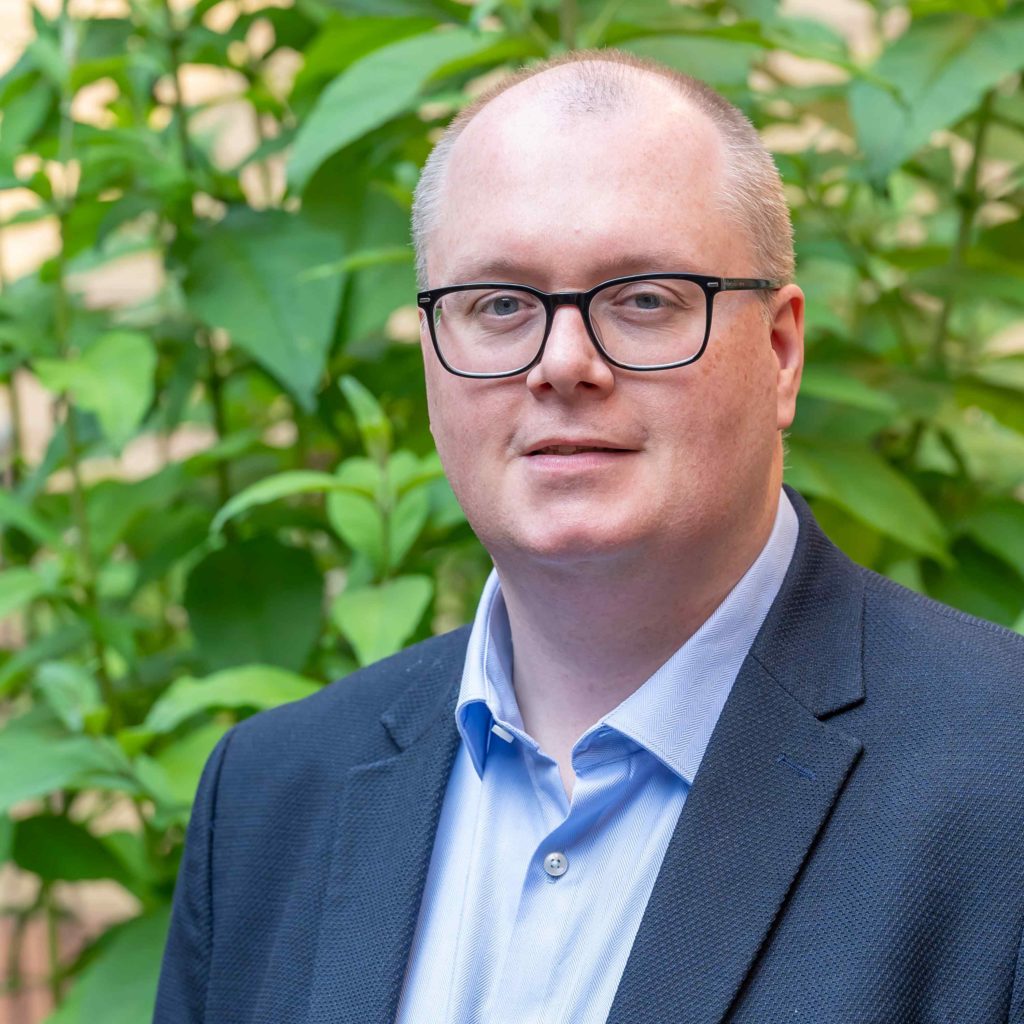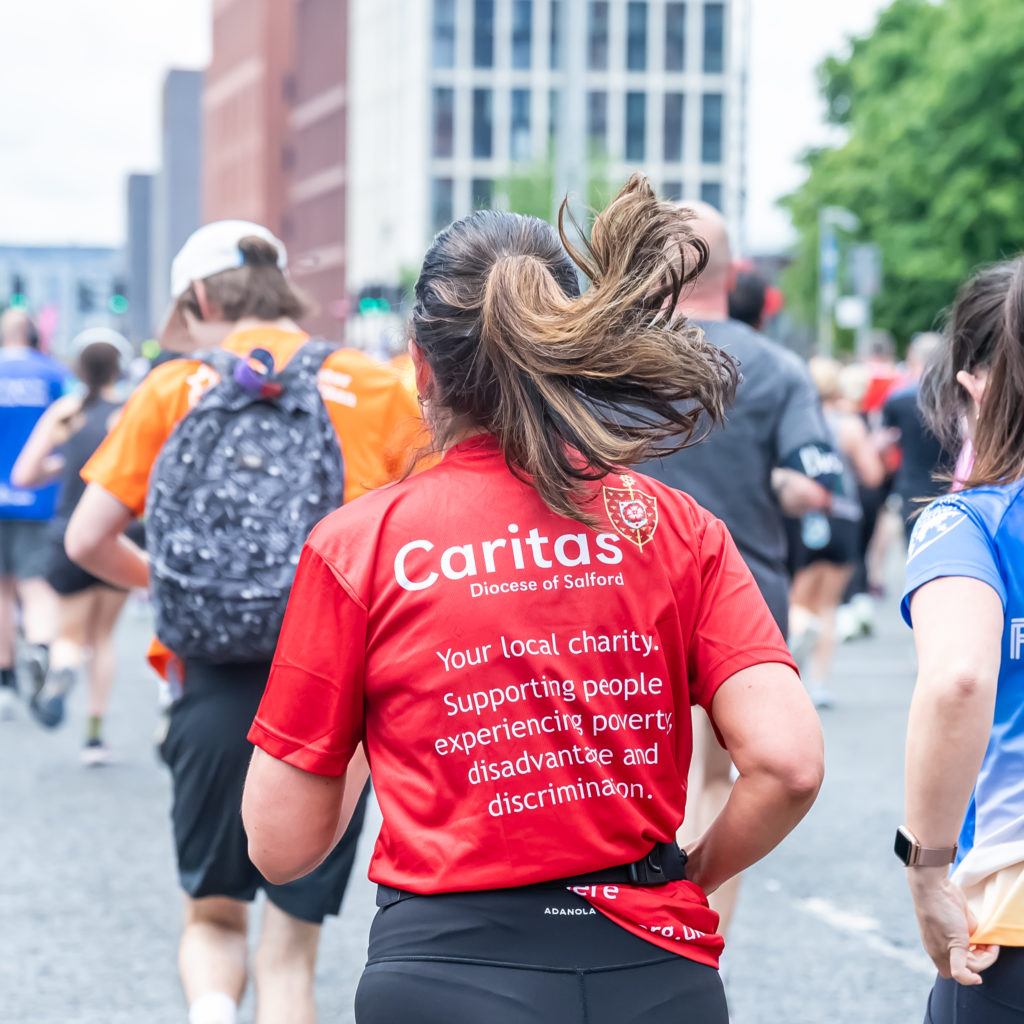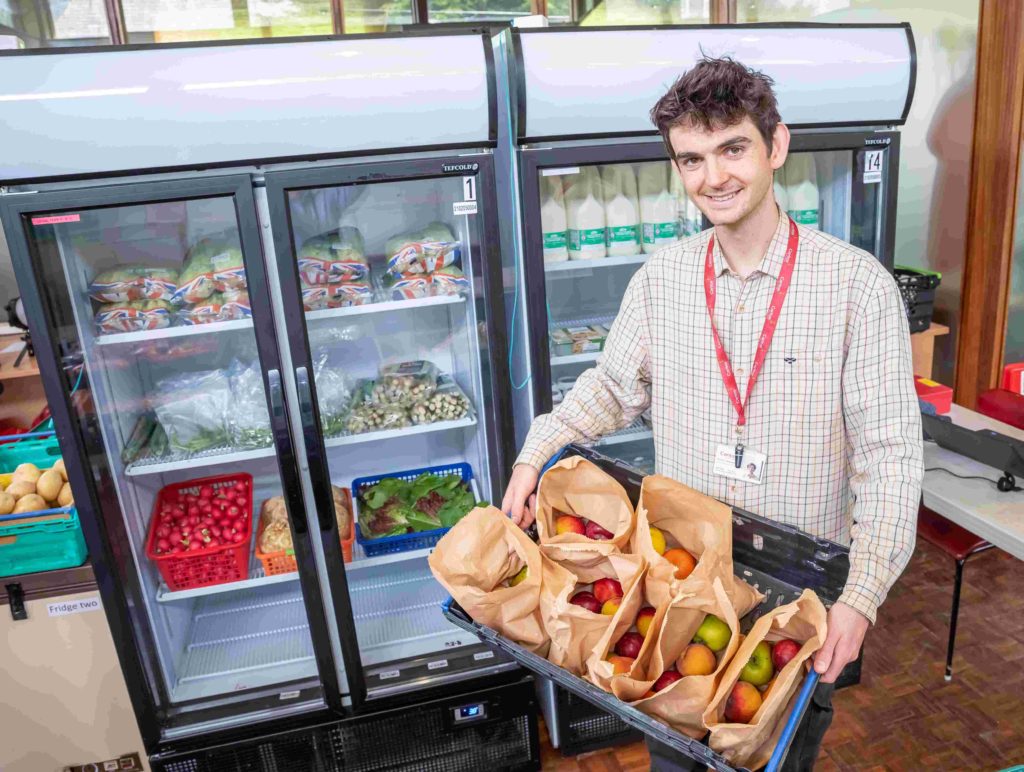As families struggle with the cost of living, millions of children are being left behind – but one charity is offering hope, dignity and real solutions
 Bleak Britain (Getty Images)
Bleak Britain (Getty Images)DESPITE being one of the wealthiest nations in the world, Britain faces a growing crisis in child poverty. By the government’s own estimation there are about 4.3 million children, 30 percent of the total, living in relative low-income households. In the face of these stark numbers, local and national charitable organisations have become a lifeline for many – offering not just immediate support but also hope for the future.
One such organisation is Caritas Salford, a Catholic charity led by its director Patrick O'Dowd. According to their figures over 333,000 children are living in poverty within the area that encompasses Greater Manchester and Lancashire.
Caritas – Latin for charity – was explored in depth by St Thomas Aquinas, who saw it not merely as giving alms, but as a deeper expression of universal love. This philosophy is central to the objectives of the charity under Mr. O’Dowd’s leadership. “It’s very much about the compassionate love that we show for our brothers and sisters.”
Describing his roots in the area Mr O’Dowd said: “I am a Mancunian by birth. I was born and raised in Manchester, studied in Manchester.” The area has a large population of people of Irish descent, including him. “The name is a bit of a giveaway. My great grandparents are from Co. Mayo, and we’ve still got family there. They migrated across to Manchester – actually funnily enough - to the parish where our office is now located north of the city centre, to St Patrick’s in Collyhurst.”
 Leading with compassion: Director Patrick O'Dowd (Photo by Caritas Salford)
Leading with compassion: Director Patrick O'Dowd (Photo by Caritas Salford)Speaking further of his link to Ireland he said, “It’s always been a strong influence and that connection of faith, of family and I suppose of fairness too, is something that has always been the spirit of my upbringing and standing with people who are the most vulnerable in society."
Along with combatting child poverty Caritas also gives support across a range of areas: “supporting refugees and migrants to the community and those with broader disadvantages. We work quite a lot with people who have challenges around accessibility and disability and our primary work is very much focused on delivering practical action. We work in schools and parishes supporting children and families, we work with people who are experiencing or at risk of homelessness through our day centres.”
Caritas doesn’t just help with immediate needs, it also works on larger, longer-term challenges that come with poverty and disadvantage, “We’ve conducted a research project, partnering with the Catholic schools across Greater Manchester and Lancashire to discuss and understand with them the nature and the extent of child poverty and also its relationship with mental health challenges that children are facing in schools. The evidence that we’ve gathered illustrates to us that the problem of child poverty is worsening. Over 95 percent of the leaders in the Catholic schools that we engage with said that poverty has increased for them in the last three years and some of those schools report that over 75 percent of the pupils are affected. That has an obvious connection with the challenges of anxiety and stress and emotional difficulties that are associated with poverty and hardship. And we all know that we only get one chance to get this right for children because the experience that they have in the formative years of childhood goes on to shape and influence their lives for the future.”
Speaking about what has impacted him personally, he said: “I think some of the most disturbing issues that we’ve had to support people with is where families - have come forward to highlight to us the conditions and circumstances that they’re living in. Whether through private, rented, or social housing, and the forms of damp and mould, and the inadequate accommodation that they are living in, which in the 21st century is absolutely heartbreaking.”
Support for Caritas comes from the local community, but also further afield. “We’ve had a very strong backing from the Irish diaspora over the years, and we’re hugely grateful for that,” Mr O’Dowd said. “But the need remains great, and fundraising is always a challenge. Every donation helps. Just this weekend, we had a runner take part in the Manchester Marathon to raise money for us."
 No time to stop: action is needed now (Photo by Caritas Salford)
No time to stop: action is needed now (Photo by Caritas Salford)When asked what more the government can do to help alleviate the pain of families he said, “We know times are tough, and we know that the government is stretched - but we really feel there is some practical action that can be taken to help. There is only one chance to get it right for children." Speaking practically, he said: “One of the changes that we think ought to be considered is adopting free school meals for all primary pupils and we’re really pleased to see that there have been some measures around school uniforms, but we definitely need to see an increase in the amount of funding that goes toward supporting children’s mental health."
On what needs to be repealed: “The two-child limit on benefits – we believe that’s something that needs to be ended in the spending review and also part of the child poverty task force that’s going on at the moment.”
The Catholic Church is central to the charity and to Mr O’Dowd personally. When asked what sort of person should next lead the Church he said: “I think someone who is able to call attention to the social, economic and environmental challenges that face people. One of the really great things about Pope Francis is he talked about fraternity – in that spirit of dialogue, and that means also putting ourselves in sometimes challenging spaces as Catholic organisations to enter into a dialogue with people, and not being afraid of that.”
 Food banks are now a necessity for many across Britain (Photo by Caritas Salford)
Food banks are now a necessity for many across Britain (Photo by Caritas Salford)Looking to the future, Caritas Salford aims to grow and expand its services across the entire diocese. “Our wider mission is to tackle a range of social issues affecting our communities,” he said. “We already do a lot of work with children and families, especially through schools, and we’re proud of that legacy. But we’re also looking to build on it – we know there’s a housing crisis, and too many people are at risk of homelessness. So, we’re committed to strengthening our response in that area too.”
In a society where poverty too often hides in plain sight, organisations like Caritas Salford serve as both conscience and catalyst — offering immediate relief, long-term solutions, and a reminder that compassion is not just a virtue, but a necessity. Patrick O’Dowd is the embodiment of that.

